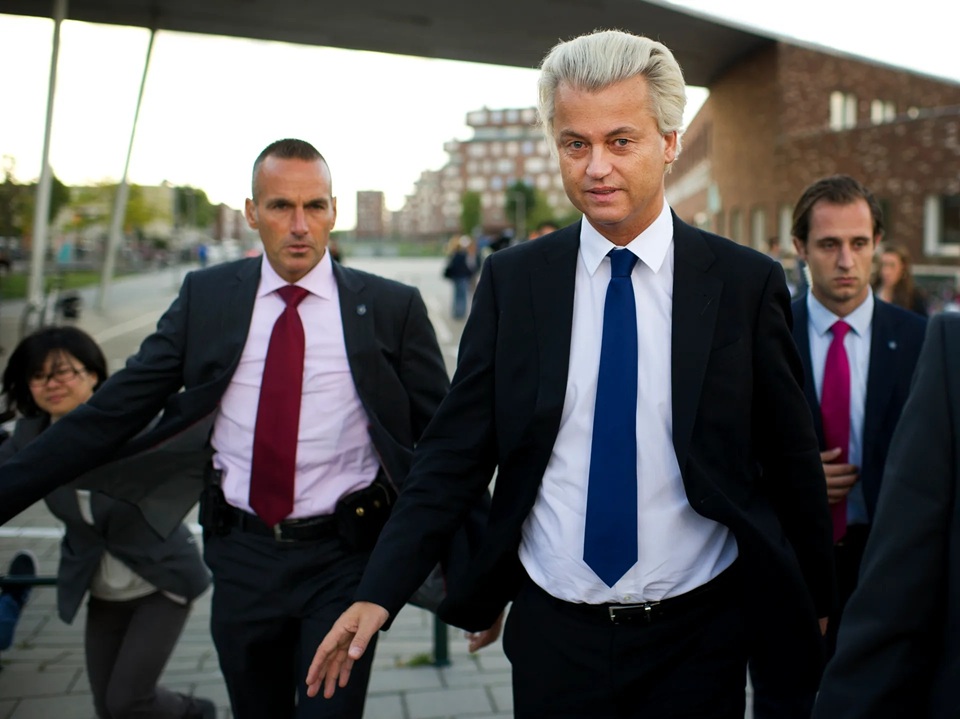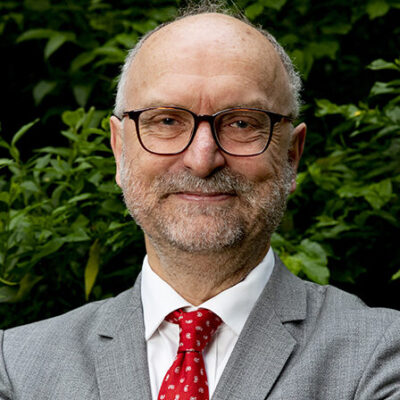
Almost a year after Dutch right-wing politician Geert Wilders founded his Party for Freedom (PVV), he still needs protection against jihadist terrorist threats. That became, once again, evident at the recent political campaign for the upcoming Dutch parliamentary elections later this month.
By Paul Cliteur
Wilders, who heads with 37 seats the largest party in the Dutch parliament, has been under heavy security protection against jihadist terrorist threats for more than 20 years. His situation is unique in Europe and perhaps even in the entire world.
Is this threat real? It isn't easy to deny, although it is still questioned occasionally.
Wilders is seen by many as the “perpetrator”, not the “victim”. He is the “perpetrator” because he “insults” people. Because he “discriminates”. Because he engages in “hate speech”. At least, that is what is said. And nowadays, people consider it much more important than the ideal he is trying to defend.
What is that ideal? That ideal is defending freedom of expression against jihadist terrorism, which seeks to put an end to that freedom. For many people, that ideal is very difficult to grasp. But they claim to know all too well that Wilders “insults people senselessly”.
Nevertheless, freedom of expression is a huge issue. After all, jihadist terrorists are trying to put an end to that freedom. The “insulting” of the Prophet Mohammed, as Islamists are used to calling it, plays a vital role in this. In the Western world, you can make cartoons of Jesus, Buddha, Karl Marx, or Charles Darwin. Of anything, really. But according to Islamist terrorists, this is not allowed when it comes to the Prophet Mohammed. It is punishable by death.

Jihadist terrorists are also willing to carry out the death penalty. When Wilders wanted to defend freedom of expression by organising a cartoon competition about the Prophet Mohammed in 2018, all hell broke loose in countries such as Pakistan and Afghanistan.
In the end, Wilders cancelled the competition for security reasons, but that cancellation did not reach Pakistan and Afghanistan. Wilders remains at the top of the death lists there. And from time to time, jihadists from those countries also visit the Netherlands.
In 2019, Pakistani Junaid I. was sentenced to 10 years in prison for attempting to murder Wilders. In September 2023, Pakistani Khalid Latif was convicted in absentia to 12 years in prison by the court in The Hague for his attempt to incite the murder of Wilders. (Latif had offered a €21,000 reward for the murder of Wilders in response to his cartoon competition about the Prophet Mohammed.)
In September 2024, spiritual leader Mullah Muhammed Ashraf Jalali and politician Saad Hussain Rizvi were convicted by the court in The Hague for incitement to murder and threats against Wilders with terrorist intent. And this is just the tip of the iceberg.
What this shows is that the planned assassinations of Geert Wilders are very real. It is therefore understandable that when a jihadist terrorist cell is discovered in Belgium, which, according to the police, was plotting an attack on Belgian Prime Minister Bart de Wever, and terrorist threats against Wilders are also found, Wilders takes the utmost care about his safety.
Against this background, Wilders had indicated that he no longer wished to appear at election debates (the Dutch will go to the polls on 29 October). Wilders has since reversed that decision. He is participating in the election debates again. But it remains an absurd situation.
His security situation structurally handicaps him in his ability to function as a typical politician. So, the leader of the largest political party in the Netherlands is under chronic surveillance. This causes severe damage to the functioning of Dutch democracy.
What does his case teach us about the terrorist threat in the Netherlands and Belgium? It teaches us that, after 20 years of muddling through by the Belgian and Dutch states, jihadist terrorism is still not under control.
The irony is that by staying away from some of these debates, he may be making even more of an impression than by his presence. What his party stands for, warning of the dangers of jihadist terrorism and the ideology that drives it, jihadist Islamism, is thus brought into sharp focus.
What also becomes clear is the failure of the state. After 20 years, jihadist Islamism is still a danger not only to Wilders personally, but to anyone who is not prepared to surrender the ideals of freedom of expression. The fact that Geert Wilders still needs protection against jihadist terrorist threats after 20 years is a manifestation of the state’s failure to function as a state.






